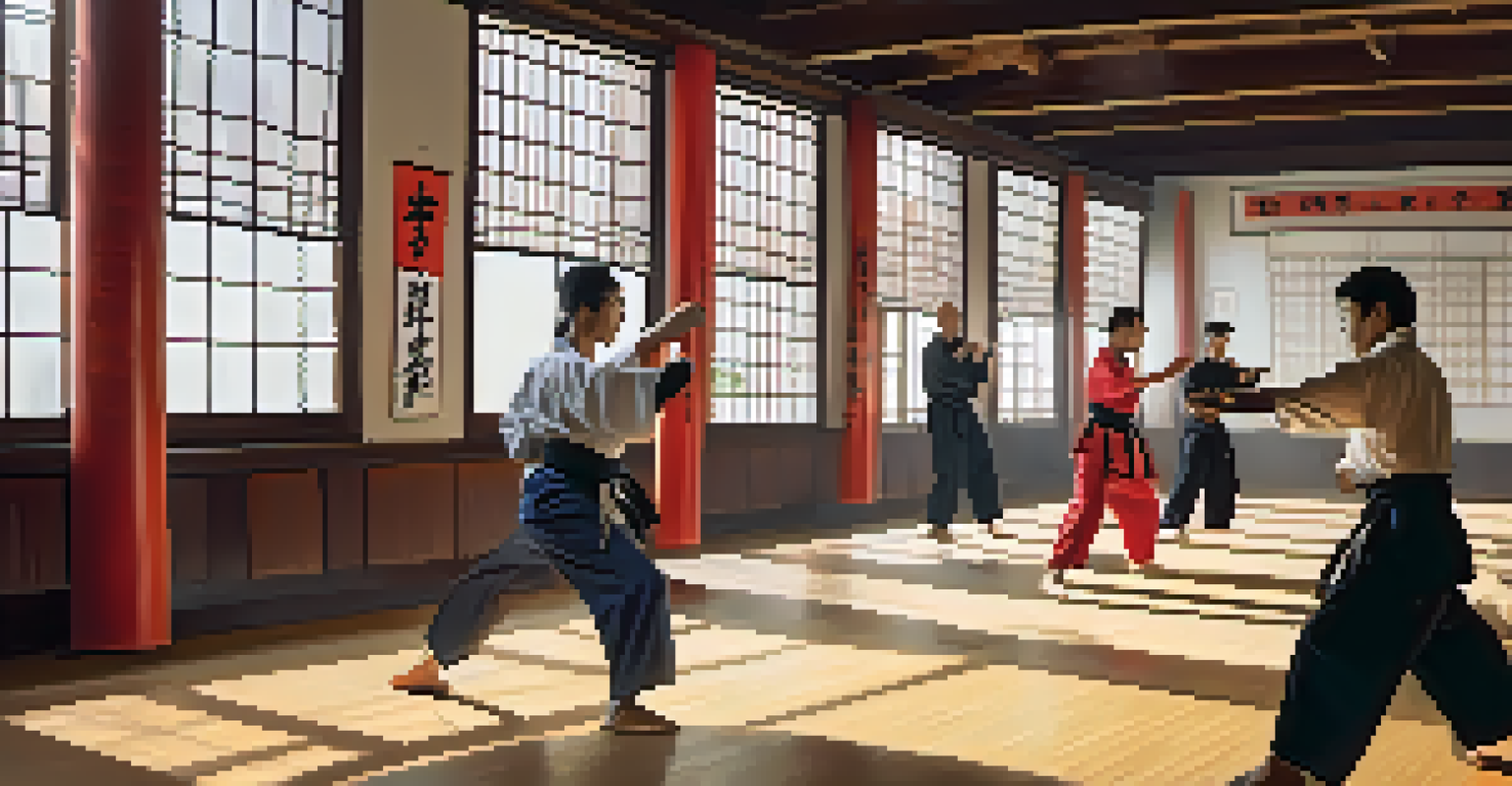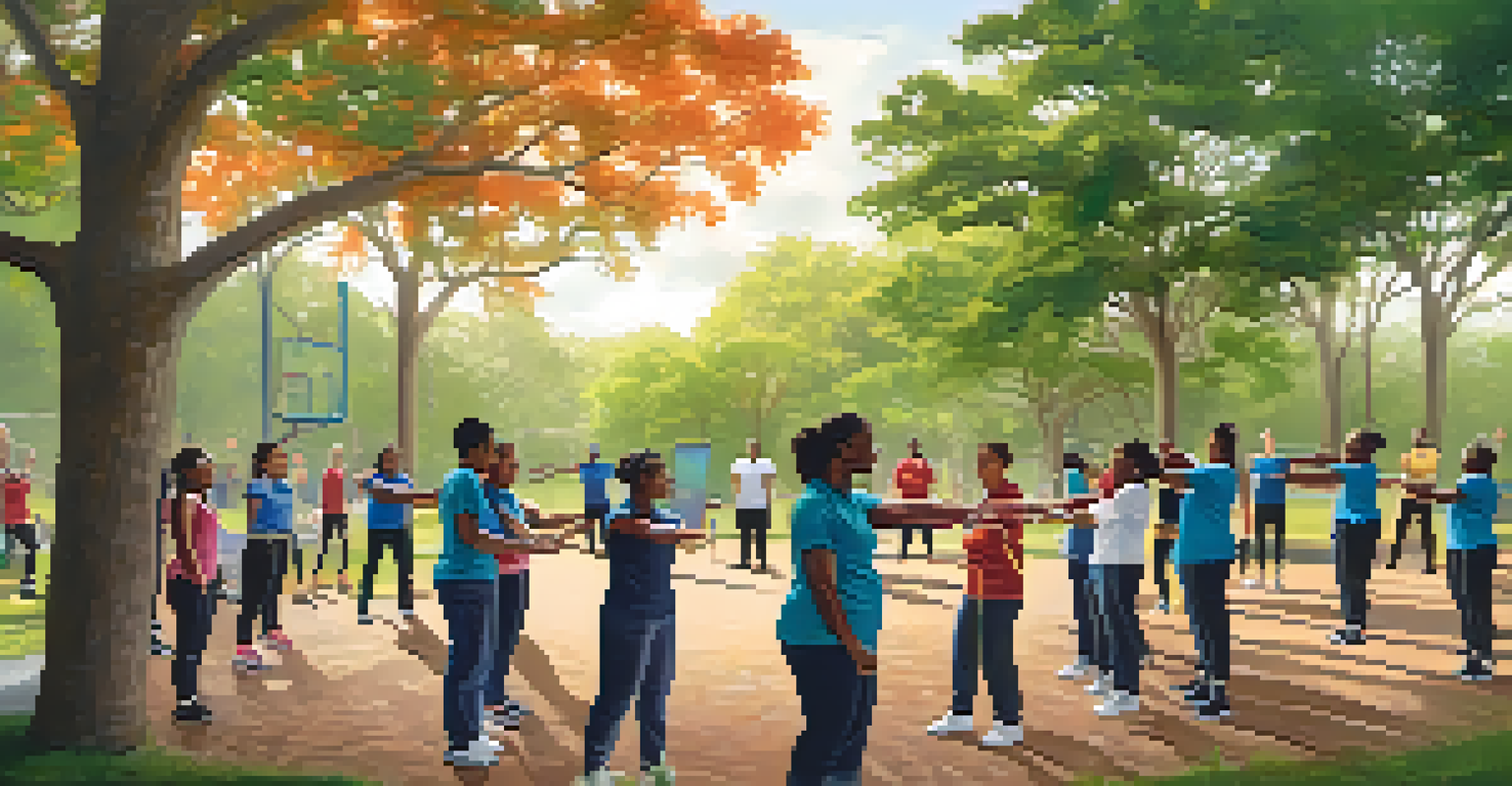Cultural Differences in Self Defense Perceptions Worldwide

Understanding Self Defense: A Global Context
Self-defense is a universal concept, yet its interpretation varies significantly across cultures. In some societies, self-defense is seen as a fundamental right, while in others, it may be viewed with skepticism or even as a potential crime. This divergence often stems from historical, legal, and social contexts that shape how individuals perceive personal safety and protection.
Self-defense is not just a matter of physical protection; it reflects deeper societal values and cultural attitudes towards safety and violence.
For instance, in the United States, the 'Stand Your Ground' laws empower individuals to use force in self-defense without a duty to retreat. Conversely, in many European countries, the use of force is closely regulated, with a strong emphasis on de-escalation and avoidance of violence. Such differences highlight the complex interplay between cultural values and legal frameworks surrounding self-defense.
These contrasting perspectives can lead to misunderstandings and conflict when individuals from different backgrounds interact. By examining these cultural differences, we can better understand the nuances of self-defense and appreciate the diversity of thought on personal safety across the globe.
Historical Influences on Self Defense Perceptions
The history of a region often plays a crucial role in shaping the perception of self-defense. For example, countries with a legacy of colonization or conflict may have a heightened sense of vulnerability, leading to a more aggressive stance on self-defense. In contrast, nations with a history of peace and stability may prioritize non-violent conflict resolution.

Take Japan, for example. Its pacifist constitution, established post-World War II, reflects a cultural aversion to violence, influencing how self-defense is viewed. Many Japanese people see self-defense as a last resort, emphasizing harmony over confrontation. This historical backdrop contributes to a societal preference for negotiation and mediation.
Cultural Variations in Self Defense
Self-defense is interpreted differently across cultures, influenced by historical, legal, and social contexts.
Understanding these historical influences can help us appreciate why different cultures react to threats in unique ways. By recognizing the past, we can better navigate the present and foster more effective communication between individuals with varying self-defense beliefs.
Legal Frameworks Governing Self Defense
Legal systems worldwide define the boundaries of self-defense, influencing how it is perceived and practiced. In many jurisdictions, self-defense laws are predicated on the idea of proportionality, meaning the response to a threat must be reasonable in relation to the perceived danger. This principle varies significantly from one country to another.
In a world where violence is often normalized, understanding cultural perspectives on self-defense can empower individuals to navigate their own safety.
For instance, in Canada, the law allows for self-defense but emphasizes the duty to retreat if possible. In contrast, places like Texas have 'Castle Doctrine' laws, which permit individuals to defend their homes with lethal force if they feel threatened. These legal distinctions reflect cultural attitudes toward personal safety and the value placed on individual rights.
Navigating these legal frameworks can be complex, especially for travelers or expatriates. Understanding the local laws is essential to avoid potential legal repercussions and to comprehend the cultural context in which self-defense is viewed.
Cultural Attitudes Toward Violence and Self Defense
Cultural attitudes toward violence significantly influence perceptions of self-defense. In cultures where violence is normalized, such as in some communities with high crime rates, self-defense may be viewed as a necessary skill for survival. In these contexts, martial arts and self-defense training are often embraced as vital tools for personal protection.
On the other hand, cultures that prioritize peace and non-violence often regard self-defense with caution. In these societies, self-defense training may be less about physical combat and more about conflict resolution and avoidance strategies. This highlights the importance of developing a mindset that values dialogue over aggression.
Legal Frameworks Shape Practices
The laws governing self-defense vary globally, impacting how individuals respond to threats and perceive their rights.
Recognizing these cultural attitudes helps us understand how self-defense is not merely a physical response but also a reflection of deeper societal values. By fostering discussions about violence and self-protection, we can work toward a more nuanced understanding of self-defense across cultures.
Gender and Self Defense: Diverging Perspectives
Gender plays a significant role in shaping perceptions of self-defense, influencing who feels empowered to defend themselves and how they approach self-protection. In many cultures, traditional gender roles have often relegated women to a position of vulnerability, impacting their views on self-defense. This dynamic can lead to a sense of fear or helplessness among women, making self-defense training even more critical.
Conversely, in societies with a strong focus on gender equality, women are more likely to embrace self-defense training as a means of empowerment. Programs designed for women often emphasize not just physical techniques but also self-confidence and awareness, creating a holistic approach to personal safety. This shift encourages women to view themselves as capable of defending against threats.
By examining gender-related perspectives on self-defense, we can better understand the unique challenges and opportunities faced by different groups. Promoting inclusive self-defense training can help bridge these gaps, empowering individuals regardless of gender to take control of their safety.
The Role of Self Defense Education in Society
Education plays a pivotal role in shaping perceptions of self-defense across the globe. Self-defense education programs can empower individuals with the skills and knowledge necessary to protect themselves, fostering a sense of confidence and awareness. In many communities, these programs are seen as essential tools for personal safety, particularly for vulnerable populations.
In contrast, some cultures may view self-defense education with skepticism, associating it with violence or aggression. This perception can hinder the growth of educational initiatives aimed at promoting safety. Advocating for self-defense education as a means of empowerment and prevention can help shift these attitudes and encourage broader acceptance.
Education Empowers Personal Safety
Self-defense education can enhance individual confidence and awareness, though its acceptance varies by culture.
By integrating self-defense training into community programs, we can create a culture of safety that empowers individuals to take proactive steps in protecting themselves. This approach not only enhances personal security but also fosters a sense of community resilience.
Globalization and Its Impact on Self Defense Views
As the world becomes increasingly interconnected, cultural attitudes toward self-defense are evolving. Globalization facilitates the exchange of ideas, leading to a broader understanding of self-defense practices and philosophies. This cultural exchange can help dissolve barriers and promote a more holistic view of personal safety.
For instance, martial arts from Asia have gained popularity worldwide, with many people embracing practices like Brazilian Jiu-Jitsu or Krav Maga. These forms of self-defense often emphasize strategy and technique over brute strength, appealing to a diverse audience. This trend highlights how global influences can reshape local perceptions of self-defense.

However, globalization also poses challenges, as differing cultural views can lead to conflict or misunderstanding. Navigating these complexities requires an open-minded approach, allowing individuals to learn from one another while respecting cultural differences in self-defense perceptions.